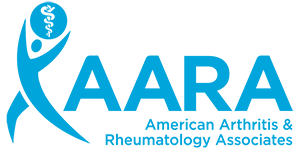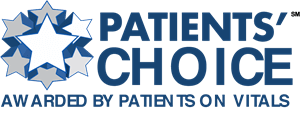Polymyalgia Rheumatica (PMR)
What is Polymyalgia Rheumatica (PMR)?
An inflammatory disorder that causes muscle pain and stiffness, Polymyalgia Rheumatica primarily is a disorder that affects the shoulders, neck, hips, and thighs. PMR is believed to be an autoimmune condition in which the immune system attacks the body's tissues by mistake. The cause is unknown, but it is believed that genetics and environmental triggers (like infections) may play a role with PMR. It is closely linked to giant cell arteritis (GCA) and typically occurs with adults over age 50, more frequently in women than men.
What are the Symptoms of Polymyalgia Rheumatica (PMR) / Giant Cell Arteritis (GCA)?
Giant cell arteritis (Temporal Arteritis) is frequently misdiagnosed as migraines, tension headaches, and often overlaps with polymyalgia rheumatica (PMR). Atypical presentations can further complicate diagnosis, making it crucial for doctors to consider GCA / temporal arteritis in patients with unexplained headaches, especially those over 50.
Common symptoms of PMR include:
- Pain and Stiffness - a sudden onset typically in the early morning or after inactivity.
- Body Aches - various levels of pain in the shoulders, neck, hips, thighs, and upper arms.
- Fatigue - a state of extreme tiredness, lack of energy, and difficulty performing daily tasks.
- Low-grade Fever
- Weight Loss
- Depression
- Everyday task challenges - this may include getting dressed, climbing stairs, standing up, lifting arms, or brushing hair.
What are the Treatment Options for Polymyalgia Rheumatica (PMR)?
Currently, there is not a known cure for PMR. There is also not a single test that confirms PMR, but a diagnosis is typically based on medical history, physical exam, blood tests (looking for elevated ERS and CRP), and response to corticosteroids (where quick improvements often confirms diagnosis). Doctors typically focus on symptoms management and improving quality of life with prompt and ongoing treatment. Treatment options for Polymyalgia Rheumatica (PMR) may include:
- Corticosteroids injections – administered immediately to reduce the risk of vision loss and to assist in managing and reducing inflammation.
- Steroid-sparing medications - use for long term management to reduce ongoing steroid use and its side effects (methotrexate or other immunosuppressants).
- Calcium and vitamin D - to protect the bones based upon the longer term steroid usage.
- Physical Therapy - to maintain strength and flexibility.
- Healthy Lifestyle - important to maintain a balanced diet, participate in low-impact exercise, and to reduce/manage stress.
Living with a Polymyalgia Rheumatica (PMR)
Treatments and disease management vary from patient-to-patient, but typically most patients require 1 - 2 years of treatment with the gradual tapering off of steroids (a relapse may occur if steroids are tapered off too quickly). Some side effects of treatment, especially from long term steroid use, may include weight gain, diabetes, or osteoporosis. Lifestyle adjustments include maintaining a healthy diet and exercise routine, taking medications as prescribed, and protecting vision. Experience dictates that treating this disease may improve quality of life. Recently, Kevzara® (sarilumab), a medicine that inhibits interleukin-6, was approved by the FDA to treat PMR. This is made a dramatic difference in the treatment of patients with PMR. It often helps them get off their steroids much more quickly.
Patient Care is our Priority
There is no known cure for Polymyalgia Rheumatica (PMR), but it is very treatable. PMR can often be managed with steroid treatments to reduce inflammation, alleviate symptoms, and improve overall function. Ongoing monitoring with your rheumatologist and adherence to your treatment plan may be crucial for achieving the best possible outcomes and for improving your quality of life. Dr. Carter and staff can help determine the right plan for you. We understand that living with this disease is not easy. Dr. Carter, along with the staff at Recovery Rheum, are here to help you every step of the way.







